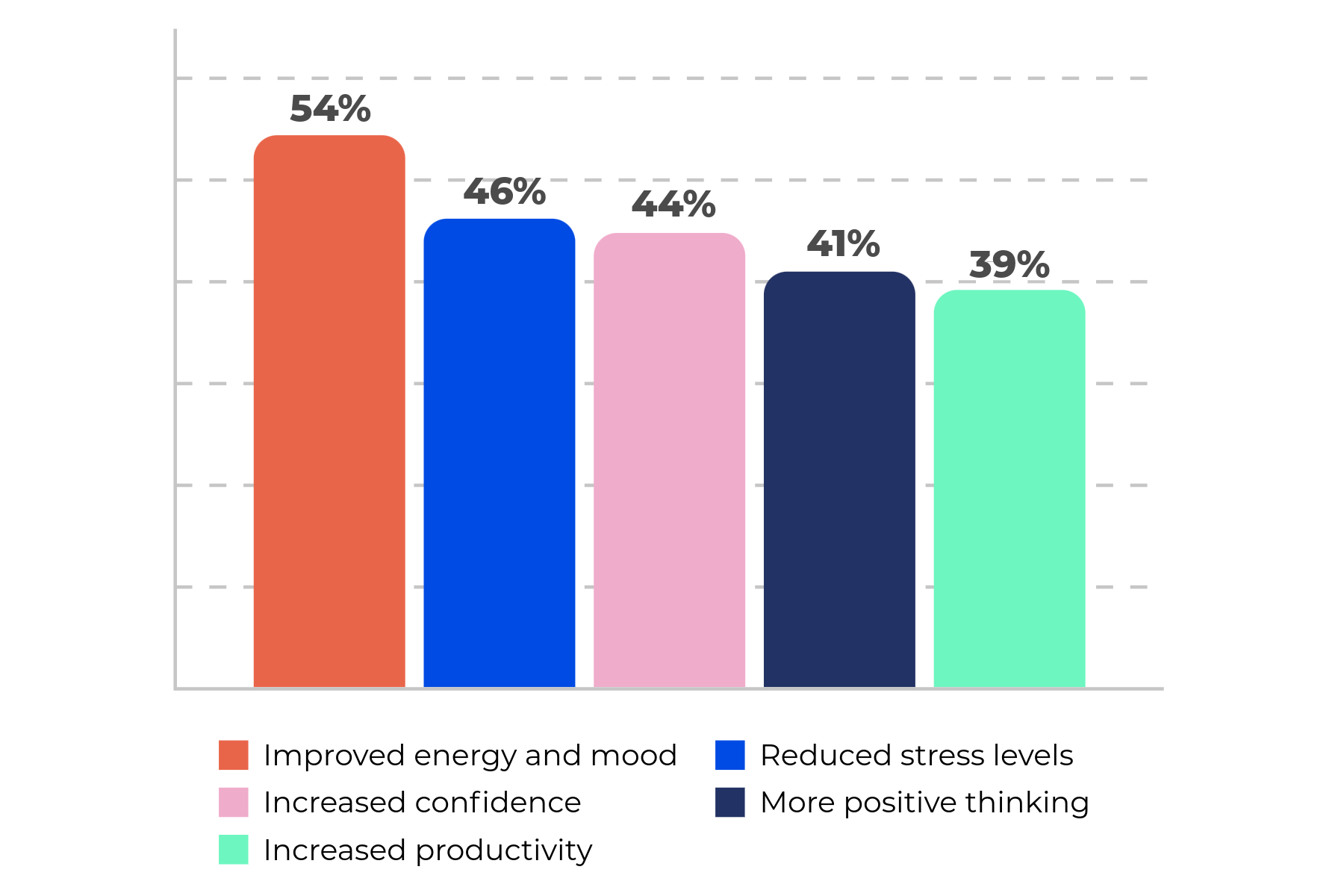Tempted to drop your New Year fitness resolution? PPL PRS survey finds music could be the motivator to keep it
Brits have given up on their New Year’s resolutions and are already looking to cancel
Home » Over half of Gen Z workers see gymgoers more than their boss in a flexible working world
Over half (55%) of Gen Z workers see their fellow gymgoers more than their boss in a flexible working world where fitness is a priority alongside your career.
Nearly 9 in 10 (88%) younger employees enjoy working out on their lunch break, with the top benefits they feel include improved energy and mood (54%), reduced stress (46%), increased confidence (44%) & boosted productivity (39%).
Music was seen as a key motivator by the majority of respondents (71%).

According to our recent survey, fitness goals are definitely a priority for Gen Z workers alongside their careers.
Over half (55%) of these younger employees see their fellow gymgoers more than they see their boss in a typical week – with nearly two-thirds (61%) putting it down to simply ‘loving going to the gym’.
Polling 500 working Brits aged 18-28, our findings suggest that Gen Z is reaping the benefits of a healthy work-life balance with exercising helping them to do the job to their full potential.
Gen Z cited the following benefits to working after a gym session:

More than 1 in 4 (29%) hit the gym bright and early before their working day – while nearly 1 in 10 (8%) squeezes in a workout during their lunch break.
Moreover, in another survey earlier this year**, we found that music is a key component of the gym experience for those who go regularly.
Around three-quarters (72%) say music is ‘very important’ when it comes to working out – especially songs with vocals (56%), whether they’re on the treadmill or in an exercise class.
A similar number (71%) adds that listening to music in the gym motivates them to work harder towards their fitness goals.
Music therapist for PPL PRS, Marianne Rizkallah, explains why listening to music whilst working out during the working week could be the winning combination.
The mind-body connection when listening to music while exercising can carry over into the workplace, as your brain learns to associate tempo and rhythm with harnessing focus and energy.”
“Exercise releases endorphins, also known as ‘pleasure hormones’, which – combined with the mood-regulating abilities of music – means you can enter your workplace better prepared to handle stressors and tasks like meetings or managing projects.”
Want to learn more about how music can transform the gym experience for both customers and staff? Click here to dive into the story of MyActive, a group of seven leisure centres based across Staffordshire and Derbyshire and see how they harness the power of music to boost their business
*A survey commissioned by PPL PRS of 500 working Gen Z Brits in September 2025.
**A survey commissioned by PPL PRS of 500 Brits in March 2025.
Marianne Rizkallah is PPL PRS’ Music Therapist Expert. She offers expertise on how music therapy affects the brain (specifically how listening to music affects mental wellbeing, both at home and work - from improving mood and motivation, to building relationships).
Marianne praises music for avoiding or alleviating symptoms of more serious mental health conditions like stress and anxiety. She is the Director of North London Music Therapy and Music Therapy Outreach and Enterprise Tutor for the Guildhall School of Music and Drama. An experienced music therapist, Marianne has worked with people of all ages, with clinical groups supporting psychosis, dementia, autism and more, and for the NHS, the education sector, the third sector and in private practice.
Brits have given up on their New Year’s resolutions and are already looking to cancel
Hospitality businesses may seem like a fun and sociable place to work, however, according to
Work-related burnout among workers is at ‘crisis point’ as over half of employees have experienced
Set up a new music licence for your business or organisation.
Get TheMusicLicence
